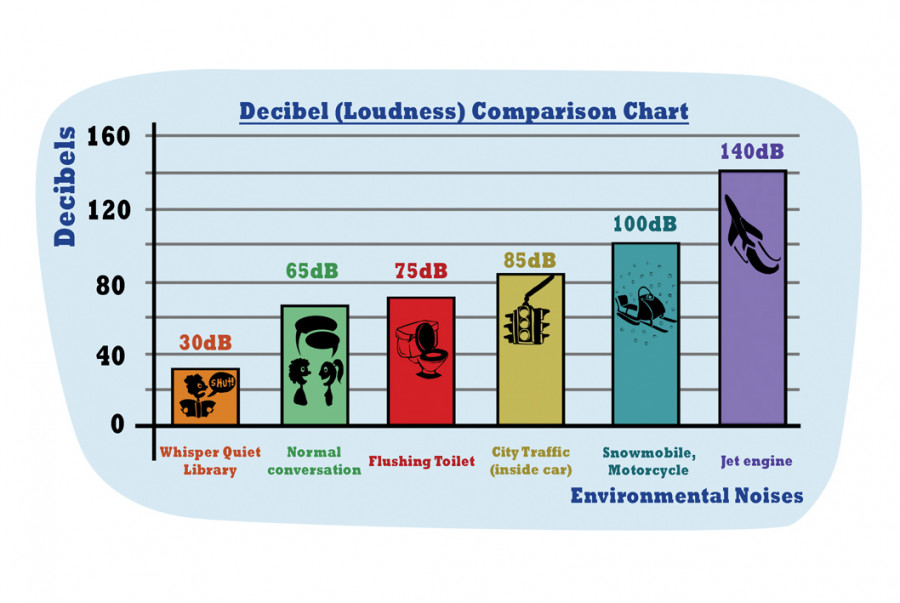80 Decibels = $1,500
The City Cracks Down on Concordia Noise (Again)
Last week, the office of the Dean of Students sent a missive to all Concordia student clubs and groups on behalf of the City of Montreal, telling us to keep the noise down—or else.
According to the notice, during this year’s Orientation, the city reportedly received a number of noise complaints.
Authorities then reminded the Concordia administration that “no noise registering above 80 decibels is allowed on public or private property,” and that if the noise level exceeds this limit, fines between $1,500 and $12,000—plus a $375 administration fee—may be imposed on the group responsible for the racket.
Eighty decibels, however, is roughly the noise produced by a normal conversation.
“As far as I’m aware, during Orientation we only received one noise complaint [downtown] on the day that the Reggie’s terrace hosted the electronic DJ night,” said CSU VP Student Life Laura Glover.
“We were asked to turn the music down, we did, and everything was fine. The security agent on site even confirmed that it was at a healthy noise level.”
While Glover has no idea who called in the noise complaint, she doesn’t think it’s necessarily fair.“It’s important for students to hold and participate in events and sometimes it might get a bit noisy, but students are a huge part of the downtown community,” she said. “I also think that the university needs to take a little bit of responsibility and defend student life on campus in these types of situations.
“From a financial perspective, the university does make a bit of money off orientation events—[the CSU] paid nearly $18,000 into security expenses,” Glover said. “But they also benefit from Orientation in that student life and
community building are huge components of how Concordia wants to be perceived locally and internationally.”
Concordia spokesperson Chris Mota explained that while there have been discussions between the administration and the city in the past, the determination of appropriate noise levels and associated fines are “not within our parameters.”
“It’s a long running issue, it’s something we talk to student leadership about fairly regularly,” explained Mota, adding that the city really started cracking down on noise control a couple of years ago.
“[We tell] student leadership to be aware. Even though Concordia is getting the phone call and complaint, these are student events and they are the ones who are liable. We just inform students that there are massive fines hanging over them. So they absolutely have to respect those bylaws.”
In 2010, former CSU President Prince Ralph Osei contacted The Gazette to bring what he called a “double standard of what constitutes noise in the downtown core” to light.
Why else, he asked, is it okay to close major downtown thoroughfares—like for the Formula 1 concerts on Crescent St., to fashion festivals, to parades—but not okay to organize outdoor events on the downtown campus?
“Dazzled by the hypocrisy” of the city for blocking the Orientation concert the CSU was planning at the time, Osei said he found it “shameful” that Ville-Marie makes so little effort to accommodate student initiatives, as student activities and presence put a ton of money into the downtown core.
“Montreal should have a single policy that applies to all students, regardless of status or political clout,” he said.
While The Link made numerous attempts to contact the City of Montreal spokesperson and Cultural Development officer to inquire about acceptable noise levels and fines—as well as the “double standard” of Crescent St.—the city was unable to respond by deadline



